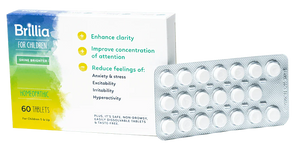In the 2006 film Failure to Launch, Matthew McConaughey plays a 35-year-old bachelor named Tripp who still lives at home with his parents. To help him gain his independence, they hire Paula, played by Sarah Jessica Parker, who is known for curing men like Tripp. She believes failure to launch syndrome is usually the result of poor self-esteem, though she learns that in Tripp’s case, it’s actually the result of a tragedy. They end up falling in love.
Though Failure to Launch was full of rom-com cliches and has a picture-perfect Hollywood ending, failure to launch syndrome isn’t just something that happens in the movies. To understand what the syndrome entails, find out the potential causes and risk factors, symptoms to look out for, and how to overcome failure to launch.
What Is Failure to Launch Syndrome?
Failure to launch syndrome is an unofficial term that describes the unwillingness or ill-preparedness of young adults to become self-sufficient or take on adult responsibilities. This may entail still living at home with parents, failure to pursue education or a career, or persistent procrastination. While the COVID-19 pandemic forced many millennials to move back home with their parents, failure to launch syndrome isn’t typically associated with a major disaster or economic distress.1 As psychologist Ellen Hendriksen explains, failure to launch is better defined by “foot dragging, delaying, stalling, or [a] flat-out refusal to participate in life.”2 She points out that while adults who have moved back home for financial reasons may be “trying mightily to contribute financially or move out” those struggling with failure to launch have no intention of doing so.
Causes & Risk Factors
Not all failure to launch cases have a specific cause, though experts have highlighted some potential risk factors. It’s also important to remember that an adult who seems to be struggling with failure to launch syndrome may also be struggling with economic factors. Poor wages, a high cost of living, and mounting student loan debt may all influence whether an individual must remain dependent on their parents to get by.
Potential Causes & Risk Factors of Failure to Launch Syndrome:
- Helicopter parenting: A 2013 study found that “helicopter parenting” in which parents are overly involved or controlling was linked with less autonomy in their children as well as increased symptoms of anxiety and depression.3
- Low self esteem: According to Connecticut-based psychologist Roseann Capanna-Hodge, low self-esteem and poor social skills can also contribute to developing failure to launch syndrome.4
- Substance abuse: In his book Failure to Launch, Ohio-based counselor Michael D. Devine reports that 50 percent of his clients with failure to launch syndrome have some type of substance abuse problem.5
Signs & Symptoms
Signs and symptoms of failure to launch syndrome are not limited to living at home with one’s parents. While this is the most common sign, a general lack of motivation and persistent procrastination are some other clues.
Failure to Launch Syndrome Symptoms:
- Living at home with one’s parents without contributing financially or making a plan to venture out on one’s own
- General lack of motivation
- Poor work ethic or low grades
- Low stress tolerance
- An attitude of entitlement
- Poor social skills or tendency to isolate
- Screen addiction
- Excessive procrastination
- Poor problem solving skills
- Refusal to seek help
Mental Health Issues That Can Worsen Failure to Launch
For some, mental health issues like anxiety, depression, and PTSD as well as conditions like autism and ADHD in adults can worsen failure to launch syndrome. By interfering with one’s thoughts and behaviors, these issues can make it even more challenging to thrive independently.
Mental Health Issues That Can Worsen Failure to Launch:
- Anxiety: A chronic fear of failure and persistent worrying can inhibit a person’s ability to venture out of their comfort zone and “launch.” They may also self-soothe with a number of self-defeating behaviors like social isolation, excessive screen time, or substance abuse, which only contributes to holding them back. A 2017 study found that children with anxiety display a pattern of reliance on parents for help in avoiding the situations they find distressing, a process known as family accommodation.6 When they don’t grow out of this pattern, it can make failure to launch syndrome even harder to overcome.
- PTSD: If a person suffered a traumatic event in the past, they may develop a fear of history repeating itself, hindering their ability to venture out on their own.
- Depression: Leaving the comfort of home can be incredibly daunting for a person struggling with depression. Just as the COVID-19 pandemic increased the rates of millennials moving home, it’s important to note that it also increased the rates of depression. From August 2020-February 2021, the percentage of adults with recent symptoms of anxiety or a depressive disorder increased from 36.4 percent to 41.5 percent, with the largest increases occurring among adults aged 18-29 years old and those with less than a high school education.7
- Asperger’s and Autism: Young adults with Asperger’s syndrome and autistic adults often have trouble transitioning to adulthood. Facing change may be an overwhelming prospect, leading many to cling to familiar habits and environments.
- ADHD: Difficulty staying on task and keeping track of responsibilities are common signs of ADHD. This condition can impede a young adult’s ability to thrive at school or work and take the necessary steps to becoming independent.
Overcoming Failure to Launch
According to Robert Fischer, M.D., a psychiatrist and Executive Director at Optimum Performance Institute, overcoming failure to launch “requires the internalization of faith in one’s ability to succeed, as well as an appreciation of the concept of interdependence.”8 If a person is struggling with anxiety, depression, or ADHD, it can feel impossible to develop faith in one’s ability to succeed or even know where to start. Dr. Roseann Capanna-Hodge provides some tips on how to take gentle steps toward independence, which include:9
- Identifying the issues that are preventing change
- Addressing mental health issues
- Seeking professional help from a counselor or therapist
For parents helping their adult children, Dr. Roseann urges them to express clear expectations and set boundaries. She also notes the importance of not accommodating adult children by providing too much emotional and financial support.
In dealing with issues like anxiety or ADHD that may be preventing one’s ability to launch, leading a healthy lifestyle can also be beneficial. Eating well, exercising, getting enough sleep, and limiting one’s screen time have all been shown to reduce anxiety and depression and help manage systems of ADHD. Incorporating mindfulness and relaxation practices into one’s day can also help you or your adult child face daily stressors and worries with a sense of calm and ease.
If anxiety or ADHD symptoms persist, using a non-prescription medication like Brillia can help. A gentle and impactful homeopathic medication, Brillia helps to reduce anxiety and irritability while improving attention and focus without producing any harmful side effects. Unlike other anxiety and ADHD medications that contain synthetic chemicals, the active ingredient in Brillia consists of antibodies to the brain-specific S100 protein (S100B), an important regulator of various different intracellular and extracellular brain processes. When this protein binds to the S100B protein, it prevents symptoms of anxiety and ADHD in a targeted manner so that no other systems in the body are affected. Brillia can be taken on its own or in conjunction with other prescribed medications because it has no contraindications with other drugs.
While the launch pad may seem elusive to those who are struggling to transition, it’s far easier to find when you or your adult child is feeling mentally balanced and healthy. Find more resources about supporting mental health at the Brillia blog.
Learn more about how Brillia works here.







